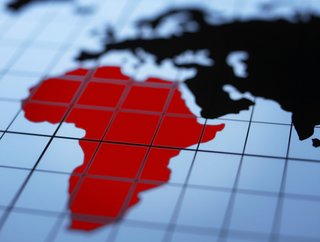McKinsey reports on Africa’s role in the energy transition

Africa, the world’s second largest continent, has the fastest-growing population in the world, and it is set to double by 2050 to reach more than two billion people.
As its population grows, Africa’s energy needs could double by 2050. Currently, around 600 million Africans lack access to electricity (about half the total population), which is expected to rise to 1.2 billion by 2050. 920 million Africans lack access to clean cooking, which could double to around 1.8 billion people in 30 years. The continent’s manufacturing output is projected to grow by more than 6% annually until 2025, which also puts a strain on energy demand.
As the global energy transition develops, McKinsey reports on the continent's role.
Increasing renewable energy development in Africa
To enable the electrification of Africa and reduce the carbon intensity of the energy supply, a change in the mix in energy production capacity is required, McKinsey reports.
Renewables will become progressively more important in electricity generation. In 2030, it is predicted to reach 65% of installed capacity by 2035 and around 95% by 2050. Around 70% of installed capacity comes from solar, 20% from wind, and 10% from hydro by 2050. Hydro currently represents 45GW of capacity in Africa, mainly across sub-Saharan Africa, with installed capacity expected to quadruple by 2050. While solar (15GW) and wind (12GW)capacity are both small currently, both are projected to grow significantly by 2050 — solar power by up to 100 times and wind power by up to 35 times.
While renewables are the future, in the short term, African gas demand is projected to increase by 3% annually until 2030 before gradually decreasing thereafter. This is in line with the global trends, with gas demand around the world set to increase between now and 2030 — investment in African gas can be expected to help meet this demand.
To boost the transition to renewable energy in Africa, around US$2.9 trillion of cumulative capital expenditure would be required between 2022 and 2050. The transition toward a greener energy mix presents a significant opportunity for investors seeking to play a meaningful role in supporting the move to renewables and driving development in the region, McKinsey states.
*********************************************
For more energy insights check out the latest edition of Energy Digital Magazine and be sure to follow us on LinkedIn & Twitter.
You may also be interested in Sustainability Magazine and EV Magazine.
*********************************************
Net Zero LIVE will be hosted live from the QEII Centre, London on the 6th and 7th of March, and streamed globally via our virtual event platform Brella. Net Zero LIVE London will feature four LIVE themes, incorporating Sustainability LIVE, EV LIVE, Scope 3 LIVE, and Energy LIVE to deliver a holistic conference and exhibition experience with opportunities to connect with like-minded peers and actively contribute to crafting a sustainable future. Following Net Zero LIVE, viewers can also sign up for Sustainability LIVE Dubai and Singapore.
Sign up to the The Global Sustainability & ESG Awards 2024, coming to London on the 11th September 2024.
*********************************************
BizClik is a global provider of B2B digital media platforms that cover Executive Communities for CEOs, CFOs, CMOs, Sustainability Leaders, Procurement & Supply Chain Leaders, Technology & AI Leaders, Cyber Leaders, FinTech & InsurTech Leaders as well as covering industries such as Manufacturing, Mining, Energy, EV, Construction, Healthcare + Food & Drink.
BizClik – based in London, Dubai, and New York – offers services such as Content Creation, Advertising & Sponsorship Solutions, Webinars & Events.






